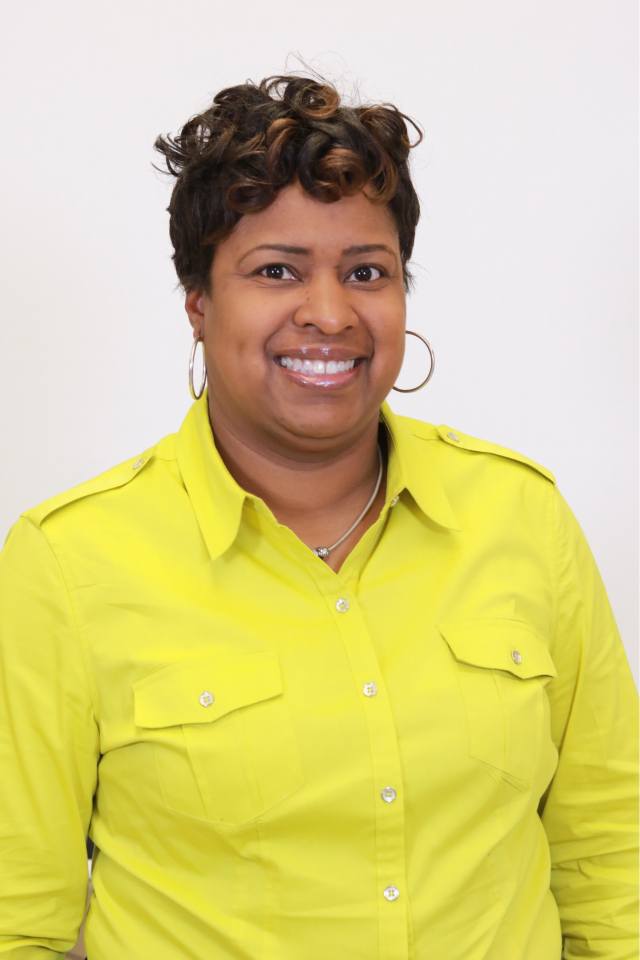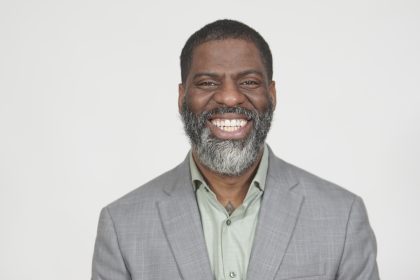
The importance of education cannot be overstated. A proper education can be the difference between having a fruitful life and living on the fringes of society. For this reason, the individuals who are responsible for the education of our children should be passionate and see a future where our children are adding value to society. Black students and educators are fighting an uphill battle with the lack of funding and disparity that exists in the system. Rolling out understands the challenges that exist when it comes to the education of Black children. We know the children are our future and it is for this reason that we honor those who are passionate about teaching our children and are passionate about education.
Today, we feature Dr. Femi Skanes, the principal of Al Raby School for Community & Environment in Chicago. We discuss why she became a principal and touch on the disparity that exists in education.
Favorite quote from African American:
“Once you learn to read, you will be forever free.” –Frederick Douglass
Why did you become a principal?
Interestingly enough, I never set a goal to become a principal. I was a passionate teacher who demonstrated strong leadership skills. My very first principal told me that I would be a principal someday but I told him that I wasn’t interested. Nonetheless, several of my supervising principals helped me to further develop leadership skills and I continued to expand my pedagogical knowledge, which eventually led to a principalship.
Why is it important to see more Black faces in leadership positions in our schools?
It is important for Black students to see courageous Black leaders who have high expectations for academic success. I often have conversations with students and I remind them that my success is not happenstance and that they can achieve the same and higher levels of success. I frequently have conversations with students about academic perseverance and discipline.
The approach to learning and teaching has changed over the years. What would you say have been the biggest changes and how have you adjusted?
Educators have seen many changes over the years. One change that is most concerning to me is that many students struggle to focus for long periods of time. As a result, it is important for teachers to plan the lesson with varied modalities to engage all learners including those who struggle to focus.
Why would you say there is such a disparity when it comes to affluent suburban schools versus schools located in impoverished urban areas?
In general, families in affluent suburban districts have financial resources. These resources provide expanded learning opportunities for students before they enter the doors of the school. As a result, many students in affluent suburban schools arrive at school with a strong level of school readiness. In contrast, many students in impoverished neighborhoods lack the basic resources necessary to be ready to excel in school. Imagine that you have two students who are running a race. Students in impoverished neighborhoods are often starting the race 50 feet behind and are running with weight around their ankle, yet they are expected to run as if the race is equal. We have to stop blaming students for factors beyond their control.
Talk about your leadership style. What do you look to accomplish?
Every morning, I ask God to provide me with the strength and leadership skills that can make a positive impact on the life of children. I strive to help students believe in themselves and to reach heights far beyond their own imagination.
My leadership style is interesting. I am firm but fair. I have high expectations with reasonable strategies for implementation. I love to laugh at work and can often be described as silly. Most people would describe me as someone who truly loves children and I will go out of my way to support them. I believe in teacher leadership and I work to create a school culture where teachers are encouraged to lead.
When I spend time mentoring new teachers, I remind them that to be a truly effective principal, this role has to be a lifestyle and not a job. A principal is on call around the clock.
What historic African American figure has inspired you the most and why?
I stand on the shoulders of many ancestors who paved the way.
Name three books you have read that have helped you with your profession.
The Sea is so Wide but my Boat is so Small – Marian Wright Edelman
Leading Adult Learning – Eleanor Drago-Severson
The Bible
If you were the Secretary of Education, what would you do to enhance the opportunity afforded to students across the country?
I would work with universities to improve teacher education programs so that more people are adequately prepared to teach students in a way that prepares them to be 21st-century leaders. I would also work to ensure that there is a funding formula that provides equitable funding solutions for schools.
What can parents do to assist in the development and success of their children?
One of the most important things that a parent can do to foster success is to be present. This is especially true in high school. Sometimes parents think that once their children get to high school that they do not have to visit the school as much. This is not true. Children need their parents to come to open houses, sporting events, and academic celebrations. Children need to feel like they are a priority for their parents. Being present goes a long way with children. I also encourage parents to embody the old tradition of eating dinner together as a family several times a week. Put down the phones, eat, and converse with one another. This helps children build communication skills and critical thinking skills. Finally, parents should require their children to tell them something that they learned at school several times a week. Do not allow students to say what they did — require them to communicate what they learned.
What can a student do to become successful?
One of the most important things that students can do to be successful is to utilize a growth mindset when engaging in new learning experiences.
What words of encouragement do you have for those who have chosen your profession?
I have three simple pieces of advice:
1.) Always maintain high ethical standards.
2.) Always do what is best for students.
3.) Listen, learn, and then lead.














